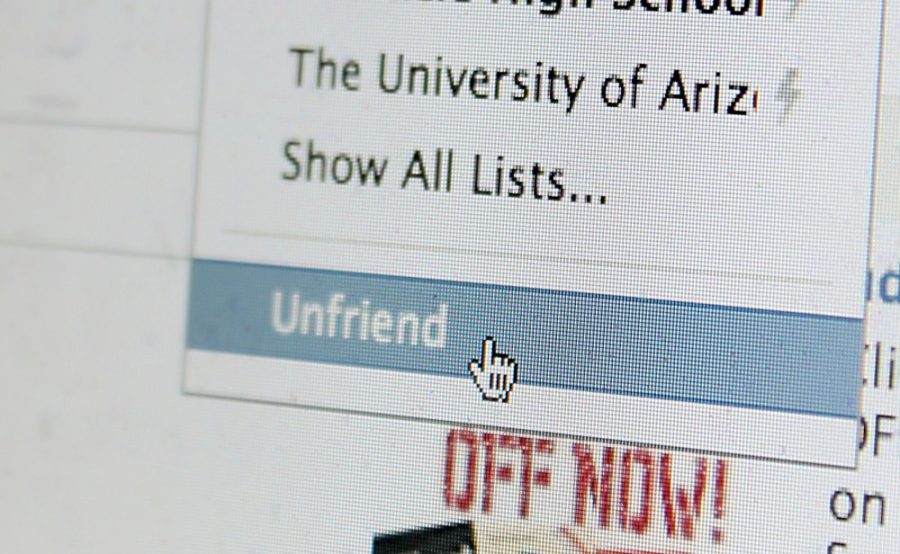A UA researcher found losing friends on Facebook may present negative psychological effects for some, but for a site that has more than 800 million users and counting, losing one friend may seem insignificant to others.
David Sbarra, a UA psychology professor, said the psychological effects on some Facebook users who are unfriended are especially common in those with a history of social rejection.
Neuroscience research demonstrates that even rejection from something as simple as a game of catch can cause activation in regions of the brain that are associated with physical pain, Sbarra said.
“We are a social species, we get along best by connecting with other people,” he said. “Being unfriended is a signal that something isn’t going right in the social environment and we are programmed to detect threats in the social environment.”
Sbarra explained that some people are hyper-focused on relationships and their status within those relationships. These people tend to have a more anxious attachment to others and are more likely to get upset when unfriended.
“I think it would bother people who aren’t social and don’t have a lot of friends, or people with a low self-esteem,” said Erica Goudy, a psychology sophomore who has more than 100 Facebook friends.
Others with a friend count as high as 700 sometimes don’t even notice when someone deletes them, or if they do, they are unfazed by the action.
“It bothers people that are addicted to Facebook and care too much,” said Tim Brousse, a freshman studying pre-business who has more than 700 friends. “It doesn’t bug me at all.”
Sometimes the act of unfriending is as simple as people going through their Facebook friend list and deleting anyone they do not socialize with, Sbarra said. Other times, being unfriended can reflect a rift in a friendship.
“I don’t really care,” said Beatriz Verdugo, a pre-business sophomore. “You don’t really need a friend if they’re deleting you. You can tell what kind of person they are if they do.”









